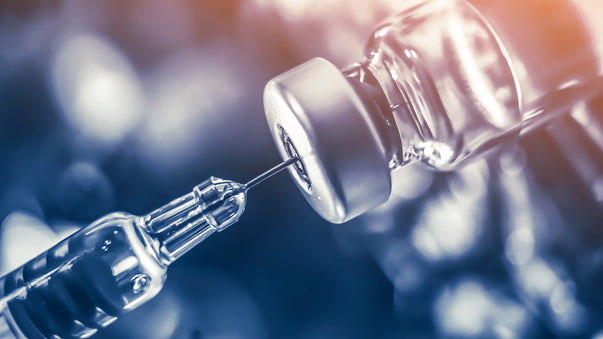Older Men Tend to Worry Less

Older men may be at greater risk of contracting COVID-19. That's because they worry less about catching or dying from it than women their age and younger people of both sexes. This is according to a new study by Sarah Barber, a gerontology and psychology researcher at Georgia State University.
"Not only do older adults exhibit less negative emotions in their daily lives," said Barber in a Georgia State University press release, "they also exhibit less worry and fewer PTSD symptoms following natural disasters and terrorist attacks."
According to Barber, this may be because older adults have better coping strategies, perhaps gained through experience, and thus are able to regulate their emotional responses better. In general, worry begins to ease with age, and is also lower among men than women. Barber added:
"In normal circumstances, not worrying as much is a good thing. Everyday life is probably happier if we worry less. However … lower amounts of worry would translate into fewer protective COVID-19 behavior changes."
Barber's second point is certainly important and worth repeating. But so is the first point, because worrying too much can make life miserable. I guess the best approach is doing what one has to do, including taking all appropriate measures to avoid COVID-19 and other unpleasant things, but without worrying.
Promising Clinical Trials for Lymphoma Treatment
Scientists at Nagoya University and Mie University have conducted clinical trials for a new treatment protocol for lymphoma. Lymphoma is a type of blood cancer that develops from lymphocytes (a type of white blood cell).
The results of the trial, published in The Lancet Oncology, appear to be promising. 76% of the enrolled patients reached the primary goal of two-year survival without disease progression and 92% reached two-year overall survival. The disease affected the central nervous system in only 3% of patients.
The toxicity of the treatment was found to be low. And all adverse effects were manageable, with very few serious complications.
Gold Nanoparticles for Fast COVID-19 Test
Scientists at University of Maryland have developed an experimental diagnostic test for COVID-19 that can visually detect the presence of the virus in 10 minutes.
The test is described in a research paper published in ACS Nano. It uses gold nanoparticles and does not require the use of any advanced laboratory techniques, such as those commonly used to amplify DNA, for analysis.
Toward New Therapies for ALS
Researchers at Jefferson Weinberg ALS Center have identified a new mechanism by which the buildup of toxic proteins disrupts neuronal transmission. Such toxins are a common hallmark of Amyotrophic Lateral Sclerosis (ALS).
The findings are described in a paper published in EMBO Molecular Medicine. They provide a groundwork for understanding how to maintain the nerve-muscle connection in ALS. And they could lead to new therapies.
Engineered Viruses Kill Cancer Cells
Hokkaido University scientists have engineered viruses that specifically replicate inside cancer cells and kill cancer cells by employing special RNA-stabilizing elements.
A study has been published Cancers. It reports that two new adenoviruses, with genetic material from two human genes and an adenovirus replicating gene, were both found to replicate inside and kill cancer cells in the laboratory, while they hardly affected normal cells.
Protein Can Inhibit Cancer Growth
Researchers led by University of Copenhagen have discovered how a protein can inhibit tumor growth in mice. The protein turns off an enzyme that stimulates cell growth, thus inhibiting the development of cancer in laboratory mice.
The research results were published in EMBO Journal. They include detailed insights on how the protein PP2A, known as a tumor suppressor, regulates proteins in order to inhibit cancer.
The researchers hope that their new cancer discovery will also apply to human tumors.
Remdesivir Benefits Patients with COVID-19
Data from the Adaptive COVID-19 Treatment Trial (ACTT), sponsored by the National Institute of Allergy and Infectious Diseases (NIAID), part of the National Institutes of Health, indicate that the investigational antiviral remdesivir is superior to the standard of care for the treatment of COVID-19.
A study published in The New England Journal of Medicine reports that remdesivir was most beneficial for hospitalized patients with severe disease who required supplemental oxygen.
In related news, researchers at Montefiore Health System and Albert Einstein College of Medicine suggest that combining Remdesivir with a powerful anti-inflammatory could be the key to treating the most severe COVID-19 cases.
New Laser for Better Eye and Heart Surgery
Scientists at University of Sydney have developed a new type of laser that can deliver high amounts of energy in very short bursts of time. It has potential applications in eye and heart surgery.
One application of the new laser is described in a research paper published in Nature Photonics. According to the paper, the laser could be used in corneal surgery, which relies on gently removing material from the eye. This requires strong, short light pulses that do not heat and damage the surface.
More Articles
Don't miss a beat! In our Pulse Newsletter, Thrivous curates the most important news on health science and human enhancement, so you can stay informed without wasting time on hype and trivia. It's part of the free Thrivous newsletter. Subscribe now to receive email about human enhancement, nootropics, and geroprotectors, as well as company news and deals.
Read more articles at Thrivous, the human enhancement company. You can browse recent articles in Thrivous Views. See other Pulse Newsletter articles. Or check out an article below.
-
Will Geroprotectors Extend Lifespan to 150+ Years?
By now, just about everyone knows that geroprotectors and other life extension treatments (LETs) can extend the lifespans of model ...
-
Encouraging Results from COVID-19 Vaccine
The first COVID-19 vaccine to reach phase 1 clinical trial has been found to be safe, well-tolerated, and able to ...


